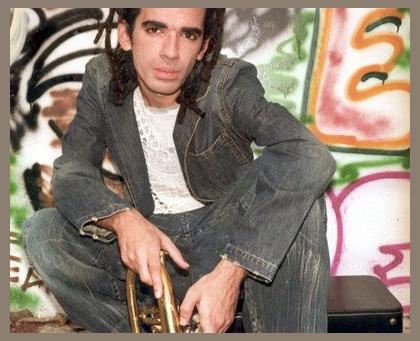 Max de Castro
Max de Castro
Max de Castro: The Man Behind the Iconic "O Nêgo do Cabelo Bom"
Max de Castro, a renowned Brazilian singer-songwriter, rose to fame with his unforgettable hit song "O Nêgo do Cabelo Bom." However, his journey was not without challenges and controversies.
Early Life and Influences:
Born in Salvador, Bahia, Max de Castro grew up surrounded by the vibrant rhythms of samba and reggae. His musical influences ranged from the traditional sounds of his homeland to the contemporary styles of soul and funk.
Career Beginnings:
In the early 1990s, Max de Castro formed his band, initially known as "Os Negões." Their breakthrough came in 1994 with the release of their debut album, "Alegria do Povo." The album featured their signature song, "O Nêgo do Cabelo Bom," which became an instant hit.
"O Nêgo do Cabelo Bom": Legacy and Controversy:
The song's catchy melody and empowering lyrics about racial identity resonated deeply with audiences. It became a symbol of pride and liberation for Afro-Brazilians. However, the song also sparked controversy due to its use of the word "nêgo," which can be perceived as a derogatory term.
Discography and Evolution:
Max de Castro continued to release successful albums throughout the 1990s and 2000s, including "Só pra Te Amar" (1995) and "Raiz do Samba" (2000). His music evolved over time, incorporating elements of funk, soul, and hip-hop.
Band Members:
Max de Castro's band has undergone several lineup changes over the years. Notable members have included:
* Max de Castro (vocals, guitar)
* Marcelo Castro (bass)
* Paulinho Santos (drums)
* Marquinho Osósi (percussion)
Challenges and Triumphs:
Throughout his career, Max de Castro has faced challenges related to race, discrimination, and the music industry. However, he has persevered, using his music as a platform for social justice and empowerment.
Current Status and Legacy:
Today, Max de Castro remains an influential figure in Brazilian music. His songs continue to inspire and uplift audiences, particularly those from marginalized communities. "O Nêgo do Cabelo Bom" has become an iconic anthem for racial equality and self-acceptance.
Max de Castro, a renowned Brazilian singer-songwriter, rose to fame with his unforgettable hit song "O Nêgo do Cabelo Bom." However, his journey was not without challenges and controversies.
Early Life and Influences:
Born in Salvador, Bahia, Max de Castro grew up surrounded by the vibrant rhythms of samba and reggae. His musical influences ranged from the traditional sounds of his homeland to the contemporary styles of soul and funk.
Career Beginnings:
In the early 1990s, Max de Castro formed his band, initially known as "Os Negões." Their breakthrough came in 1994 with the release of their debut album, "Alegria do Povo." The album featured their signature song, "O Nêgo do Cabelo Bom," which became an instant hit.
"O Nêgo do Cabelo Bom": Legacy and Controversy:
The song's catchy melody and empowering lyrics about racial identity resonated deeply with audiences. It became a symbol of pride and liberation for Afro-Brazilians. However, the song also sparked controversy due to its use of the word "nêgo," which can be perceived as a derogatory term.
Discography and Evolution:
Max de Castro continued to release successful albums throughout the 1990s and 2000s, including "Só pra Te Amar" (1995) and "Raiz do Samba" (2000). His music evolved over time, incorporating elements of funk, soul, and hip-hop.
Band Members:
Max de Castro's band has undergone several lineup changes over the years. Notable members have included:
* Max de Castro (vocals, guitar)
* Marcelo Castro (bass)
* Paulinho Santos (drums)
* Marquinho Osósi (percussion)
Challenges and Triumphs:
Throughout his career, Max de Castro has faced challenges related to race, discrimination, and the music industry. However, he has persevered, using his music as a platform for social justice and empowerment.
Current Status and Legacy:
Today, Max de Castro remains an influential figure in Brazilian music. His songs continue to inspire and uplift audiences, particularly those from marginalized communities. "O Nêgo do Cabelo Bom" has become an iconic anthem for racial equality and self-acceptance.